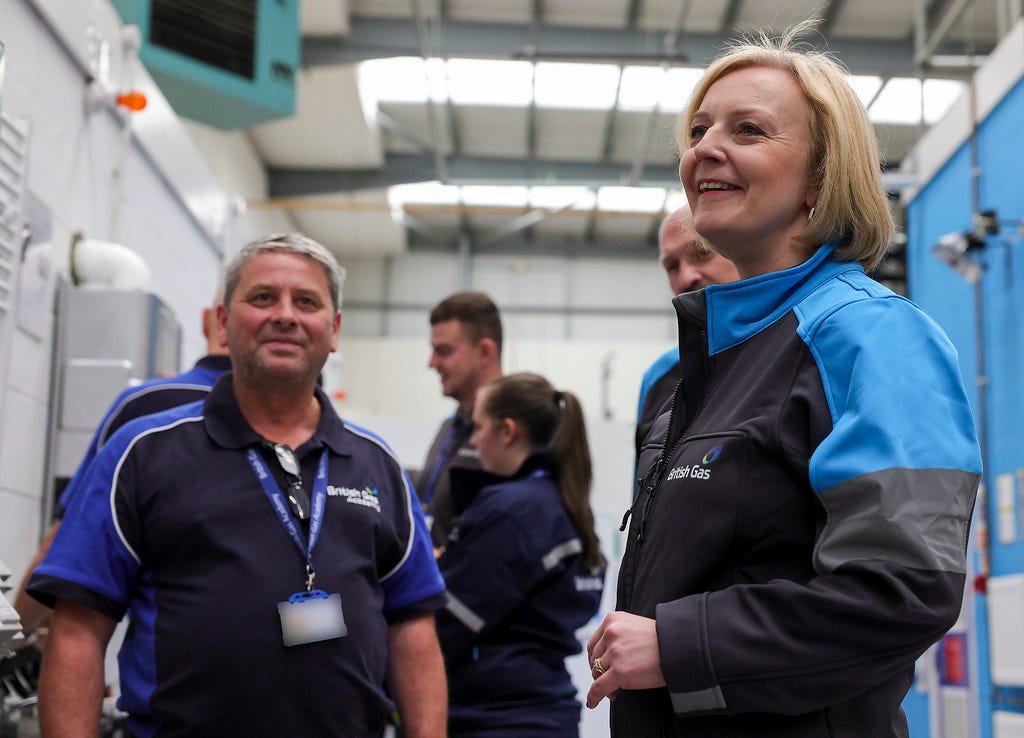Just a buyer? Centrica downplays Mozambique risks
Our AGM question reveals supply chain due diligence blind spot
Last week, I attended the annual general meeting of Centrica, which owns British Gas, the UK’s biggest domestic gas supplier. As the proud owner of three shares — currently worth just under £5 — I took the opportunity to submit a shareholder question scrutinising a major supply deal that the company signed in 2019, for cargoes of liquefied natural gas (LNG) from a new project in Mozambique.
Financing and constructing a major LNG export project in northern Mozambique — a region gripped by an Islamist insurgency since 2017 — was always going to be a challenge. Originally proposed by the US firm Anadarko and now being run by TotalEnergies, Mozambique LNG has leaned heavily on public finance, notably via a $4.7 billion loan from the US Export-Import Bank. Smaller tranches from UK Export Finance (UKEF) — a deal controversially pushed through by Liz Truss — and the Netherlands’ export credit agency, Atradius DSB (ADSB), have also been committed.

In addition to help from governments, a crucial piece of the puzzle needed for an LNG export project to secure finance from banks and other financial institutions is a strong slate of contracts with future buyers, known as sales and purchase agreements (SPAs). Mozambique LNG has done well here too — according to data from Kpler, the vast majority of the project’s planned capacity of 13 million tonnes of LNG per year has already been committed to buyers through contracts running into the 2040s.
Future buyers play an important role in ensuring that an LNG export project gets built — by committing to purchase gas over a period of several decades, they provide the project developer with the stable returns needed to finance construction. But what happens when things go wrong? As key enablers of a project, do these committed buyers have any responsibility for its environmental and social impacts? Because things are going very wrong with Mozambique LNG.
In April 2021, TotalEnergies declared force majeure on the project due to the security situation in Cabo Delgado, halting construction and withdrawing personnel from the site. The Indonesian firm Pertamina cancelled its Mozambique SPA without penalty in 2023, citing the ongoing delays. Then, on 26 September 2024, Politico released an investigation alleging that Mozambican security forces based at the project site had massacred dozens of civilians. The allegations were widely reported and have led both the Dutch and British governments to reconsider their support for the project.
To return to the AGM: I asked Centrica’s CEO, Chris O’Shea, to detail any specific, enhanced human rights due diligence that the company had undertaken in relation to its Mozambique LNG SPA since the last meeting, particularly concerning security force conduct and related community impacts. I’d submitted the question in advance, so expected a bland but comprehensive answer detailing how closely the company was monitoring the situation.
What I actually got was surprising:
The first we heard about the alleged human rights abuses were Total’s statement in March of this year. There are, I think, three investigations that are ongoing at the moment, in France and the Netherlands, and I think in Mozambique. We do audit our supply chain, not just the LNG contracts that we’ve got, but we audit a good part of our supply chain to make sure that it fits with our ethical standards.
There’s not too much that we can say here because, firstly, we’re not an owner of Mozambique LNG, we are a buyer from Mozambique LNG, so we don’t have access to the things that others may have access to, but we will watch and understand what the outcome of the investigations are and then we will discuss that as a board to see if there's any action that we should take as we move forward.
Let’s unpack this. The statement from TotalEnergies that O’Shea is referring to was published on 26 March 2025, a full six months after Politico’s story, which was widely covered by other outlets at the time and even drew its own response from Total. The Mozambique deal is not a small part of Centrica’s future LNG portfolio: in fact, it’s one of only three SPAs, the other two being for projects in the US. And global oil and gas markets are powered by news: headlines shift price benchmarks on a regular basis and companies involved in the sector pride themselves on keeping up-to-date.

In this context, Centrica’s claim to have had no knowledge of the controversy surrounding Mozambique LNG until March 2025 seems feeble at best, and perhaps even a serious failure of due diligence. To hide behind the idea that “we are a buyer from Mozambique LNG, so we don’t have access to the things that others may have access to” makes little sense in the context of a major global news story, and as a buyer Centrica will naturally have significant influence with the project developer, including the ability to ask questions and request further information.
Centrica’s Supplier Charter is short, running to just two pages, but includes a clear provision that all suppliers must “support, respect, uphold and advance the protection of internationally proclaimed human rights”. It further states that the company “will monitor performance and take appropriate action where we believe Suppliers do not act consistently with […] Our Supplier Charter.” It may be that the company upholds these principles in relation to other aspects of its supply chain — Centrica’s 2024 Modern Slavery Statement details a focus on manufacturers of clothing, smart technology products, solar panels and batteries — but it appears to have a tanker-sized blind spot when it comes to suppliers of gas itself.



